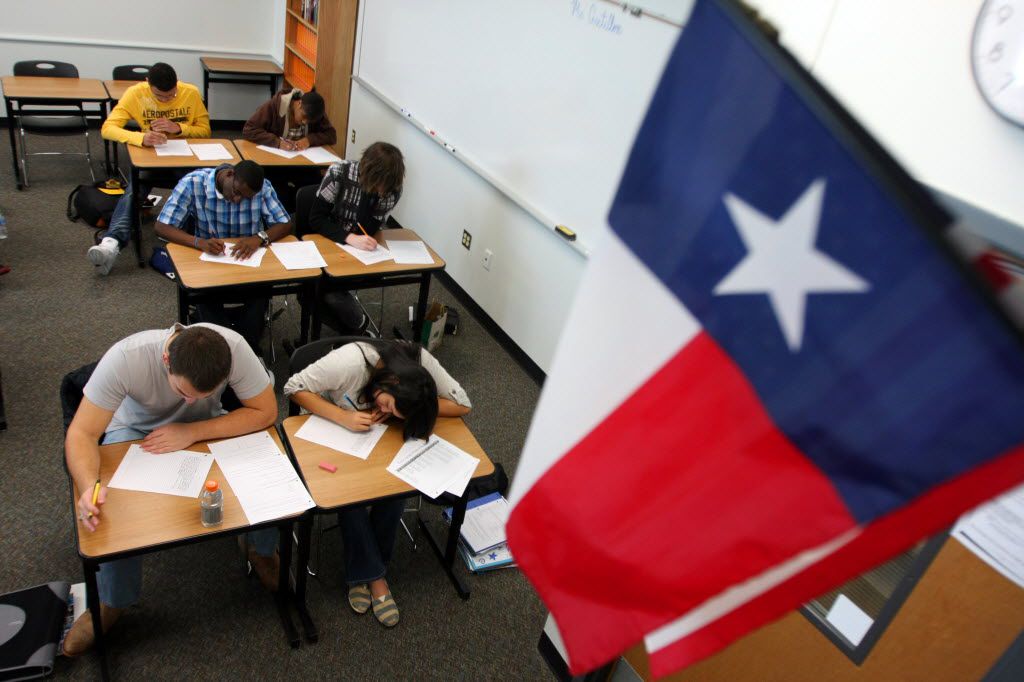With a new school year underway and an important special session on education around the corner, it’s absolutely critical that our school leaders, elected officials and community members have a shared understanding of how well we are serving all Texas children. So what does the data, representing the voices of our students, say?
Recently released STAAR data demonstrates that our state’s educators are having notable success in accelerating learning. The amount of students reading on grade level is now six percentage points greater than it was before the pandemic. While math achievement has proved more difficult to recover, it’s now eight points greater than it was two years ago at the bottom of the pandemic trough.
This is a continuation of a trend we first noted in last year’s Nation’s Report Card data: Texas has proven itself especially resilient to the worst of the pandemic’s educational impact, moving up in national rankings due in part to the transformative investments made by our state’s leadership in 2019.
Texas House Bill 3 was not merely a multibillion-dollar investment in public schools. It represented a mindset shift in how we invest in education, with an eye toward outcomes via directed funding towards strategic inputs. Districts immediately saw increased funding, but also had the opportunity to earn even more by pursuing strategies proved by research to increase achievement: adding instructional time, offering pre-K, rewarding effective educators for serving on high-needs campuses and paying our best teachers to stay in education and in the classroom
Just four years later, over half of Texas districts are now pursuing thoughtful compensation models to reward their teachers having the greatest positive impact on their students. Once-struggling campuses are redesigning their school calendars and seeing incredible results. In Dallas ISD, the rate of students graduating college, career and military-ready has climbed steadily upward, even as college-going rates have receded nationwide.
In short, a critical mindset shift of how we invest in education is taking hold. But unfortunately, significant inflation has eroded the purchasing power of our school districts just as federal COVID-19 recovery funds are set to expire.
Without another significant and strategic school finance investment, we run the real risk of squandering the great progress that’s been made and is still to come. Superintendents across North Texas have been forced to cut staff, eliminate programs and scale back mental health support while working to comply with critical safety requirements. Despite these significant reductions, many are still operating at unsustainable deficit budgets.
We applaud Texas budget writers for preserving $4 billion of our state’s recent surplus to be invested in public education, and we hope that even more resources can be found in the upcoming special session. The Texas House Select Committee on Educational Opportunity and Enrichment deserves our gratitude for thoughtfully approaching how to spend those resources in their recent report. In addition to increases in the basic allotment, the report recommends additional funding for school safety efforts, increasing support in the critical early foundational grades, and adjustments making recruiting and retaining high-quality teachers more feasible.
The state, too, deserves credit for the earlier convening of a Texas Teacher Vacancy Task Force, whose recommendations informed proposed school finance legislation during the regular session. In particular, a proposed teacher residency program promises to strengthen our teacher workforce and ultimately benefit our students.
We know what needs to be done. The school finance overhaul in 2019 provides the model, and the reports noted above lay out potential next steps. Now is not the time to take our foot off of the gas. Now is the time to act. Our state educates 10% of the nation. Our schools prepare the workforce of the world’s ninth-largest economy. It is critical that our Legislature maintain our positive momentum and give every student, representing the future of Texas, the education they need to provide the economic opportunity they deserve.
Todd Williams is the CEO of The Commit Partnership and served on the 2018 Texas Commission on Public School Finance. He wrote this column for The Dallas Morning News.
We welcome your thoughts in a letter to the editor. See the guidelines and submit your letter here. If you have problems with the form, you can submit via email at letters@dallasnews.com
